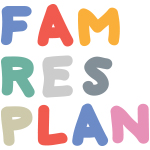Edukacijsko-rehabilitacijski
fakultet Sveučilišta u Zagrebu
[ Specifična obilježja
obitelji u riziku: doprinos planiranju
kompleksnih intervencija ]
Sudjelovanje na 6. EFCAP kongresu, Venecija, 20.-22.6.2018.
Ponedjeljak, 25. lipnja, 2018.
Doc. dr. sc. Anja Mirosavljević, članica tima, sudjelovala je na 6. EFCAP kongresu “Young victims and young offenders. Prevention and intervention within families and institutions” koji se održao u Veneciji od 20. do 22. lipnja, 2018. s usmenim izlaganjem naslova “PILOT STUDY OF THE FAMILY RESILIENCE FROM THE PERSPECTIVE OF FAMILIES AT RISK”.
Sažetak predavanja:
Family resilience concept is new, under-researched process that could be of importance for complex family interventions planning. The research problem of this study was What makes family at risk resilient? Due to recognized main challenges in researching this topic (difficulties in conceptualization and operationalization of the concept of family resilience, ethical issues in family studies, family interview protocol validation and seeing family interview as a specific approach that goes beyond method and often includes intervention) we’ve done a pilot research.
Objectives were to get insight into family perception of their functioning as well as circumstances that contributed to family resilience. The methodological objective of the pilot was to validate the interview protocol and get experience in leading the family interviews.
Semi-structured family interviews were conducted in 2017 with families at risk from the City of Zagreb and the Zagreb County area included in intervention delivered by NGO Ambidekster. The data were analysed using thematic analysis.
The results show that it was very hard to “catch” the family perspective. So, one of the added research questions for the main study is: Does family perspective even exists? In short, families talked about cumulative risks and connect resilience with active strategies of coping with problems and changes. Protective factors were most evident within family members and regarding family functioning.
Researching family (in family with family) is a complex task. Therefore, this paper enables initial clarification of the concept and starting points of the research, but also makes it easier to carry with the uncertainty of the research process, especially when it comes to qualitative approaches. Regarding the fact that we want to explore concepts which are processes with families at risk, family interview must be used as a method and intervention for strengthening families but in addition, new and creative collecting data methods as well as data analysis methods should be developed.
Više o kongresu na http://www.efcap2018.com/.
Prezentacija s konferencije dostupna je klikom na poveznicu.

